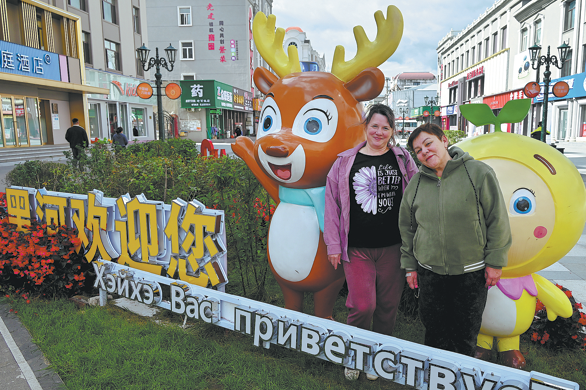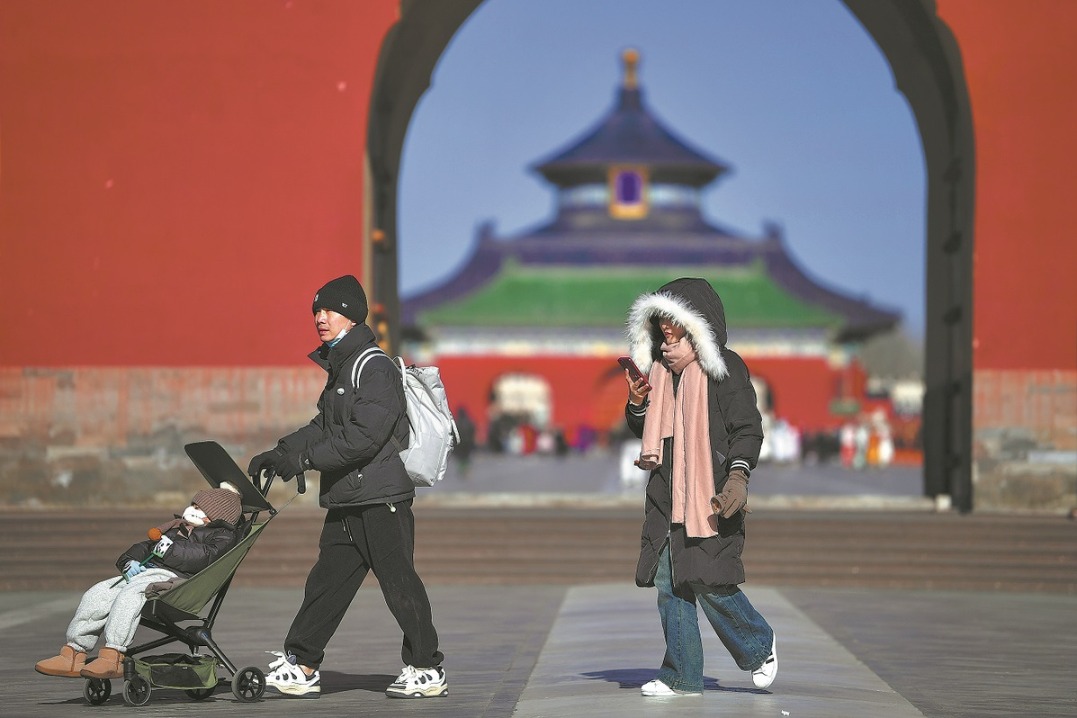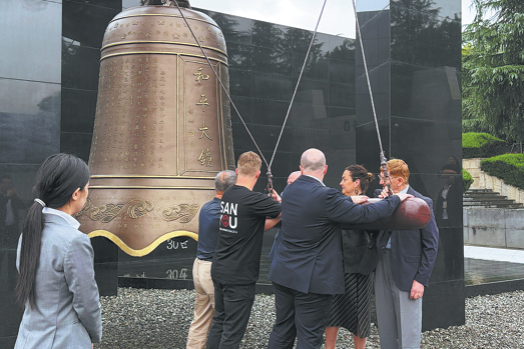Tango diplomacy sets the tune for success
By Mo Jingxi | China Daily | Updated: 2018-12-31 08:05
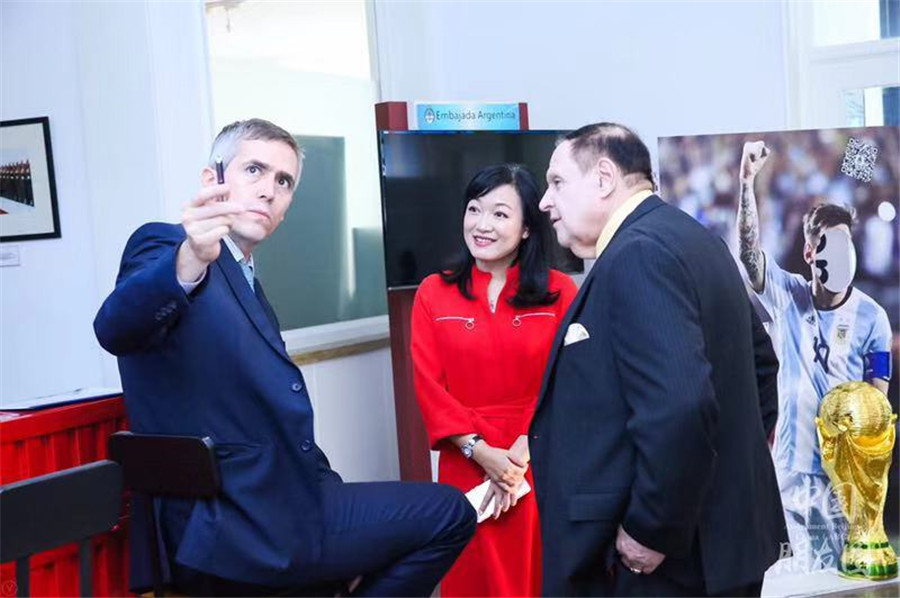
Argentine dance helps diplomat build strong partnerships to last a lifetime
Diplomacy and tango have key things in common: keeping in step, meeting people and partnership. That is certainly the case for diplomat Juan Cortelletti, whose introduction of the romantic and melancholy tunes of the dance to Chinese people seemed a perfect act of cultural promotion.
"We were very happy to organize the tango academy in China, and it is named after Carlos Cardel, a famous tango singer from Argentina. People met and made friends during the course," said Cortelletti, who spent three years working as the cultural counselor of the Argentine embassy in Beijing before returning to Buenos Aires in December.
Cortelletti said tango promotion has been one of the most important elements of his job. The embassy launched and sponsored dozens of tango schools all around China.
"Chinese people are very passionate about tango. Every year we sponsor the tango national championship in China: dancers from different provinces do their best to win and have the opportunity to represent China in the Tango World Championship held in Buenos Aires," he said.
"One extraordinary example of the reach of tango in China is that several square dancing groups have adopted tango as one of the disciplines they practice. This could make tango extremely popular."
"Often, learning about a culture is the starting point for an actual visit to a country," said Cortelletti, noting that culture and people are important for two countries to interact and strengthen bilateral friendships.
He cited one example.
Chinese are introduced to tango and become passionate about it. Then, the next step, they learn Spanish in order to understand the lyrics of the songs and be able to name the steps of the dance, then approach works of literature or watch an Argentine film.
"Finally, many will decide to actually visit the country."
When Cortelletti assumed his post in the embassy, he was entrusted by the Argentinian Ambassador to China, Diego Ramiro Guelar, to work with culture and place it at the same level of importance as any other branch of bilateral ties such as commerce and investment.
"We both believe that cultural efforts could in a way enhance the full bilateral relationship," he said.
In a signed article published on Argentine newspaper Clarin ahead of his visit to the South American country in December, President Xi Jinping wrote that "There are two passions for Argentineans, both centering on movements of the feet. One is football, and the other is tango."
He also encouraged more people-to-people interactions between the two countries and expanding cooperation in such areas as culture, education, science and technology, sports and tourism.
More measures should be introduced to facilitate personnel flows and share development experience as all this will contribute to stronger public support for China-Argentina friendship, according to Xi.
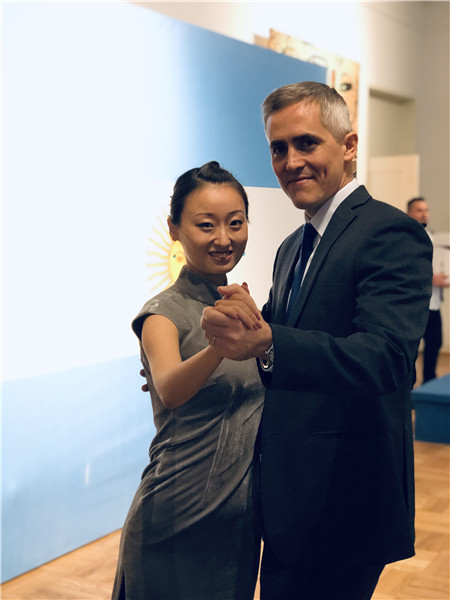
Cortelletti first visited China 10 years ago, when he attended a six-week course in Beijing hosted by the government about Chinese culture.
During the course, he learnt a great deal and traveled to many places including the Three Gorges Dam in Yichang, Hubei province.
At that time, he already "knew about modern China and all the extraordinary economic progress", but he was still impressed by the country's achievements over the past years including the fight against poverty and scientific and technological innovations, such as the high-speed trains and bike sharing, when he returned in 2016.
For the diplomat and his wife, two daughters and a son, China has been a very important post because they were involved not only with their specific job to promote Argentine culture, but also were very committed to studying the language, history and traditions.
In three years, Santiago, his three-year-old son, has grown from a baby to a little boy who can speak fluent Chinese.
When Santiago stood up for the first time here in Beijing, Cortelletti and his wife had encouraged him in Chinese.
"We are sure that China will be with us for the rest of our lives," he said.
Last year, the embassy organized a Spanish literary contest for Chinese residents. Two of the prize winners were an 82-year-old man and a 10-year-old boy, which showed the interest in Spanish had spanned generations.
"It was very touching to see them both talking in Spanish at the prize-awarding ceremony and reading the work of Jorge Borges, one of the most admired Argentine writers," Cortelletti said.
Chinese literature, he said, has poetic and descriptive beauty in both content and characters, which makes writing the language akin to painting with rich colors, he said.
"I think I will miss speaking Chinese everyday in the street and to see the Chinese characters in the street," he said.
In November, Cortelletti met with Mo Yan, winner of the 2012 Nobel Prize in Literature, at an event organized by the Argentine ambassador.
"We learnt a lot from him and I have read one of his books," he said, adding that he was looking forward to reading all his books back in Argentina. As a foreigner, Cortelletti said he loves all kinds of Chinese food but he especially likes shrimp dumplings.
Besides organizing various cultural activities in China, the diplomat is also focused on promoting China in Argentina to make as many people as possible understand what is happening in China because "sometimes the idea they have is not accurate".
"It is natural that some people don't get used to new things, for example, the use and growth of artificial intelligence in China," he said, adding that he can see change slowly happening.
He hoped his work back in the Argentine foreign ministry will be related to his knowledge and appreciation of China.
In a farewell party hosted for Cortelletti, Guo Yao, a 36-year-old Chinese tango teacher who had been invited to teach courses by the embassy, danced the tango with her students, a fitting tribute to a cultured diplomat.
Guo said she was deeply impressed by the diplomat's efforts to promote tango in China through organizing lectures and courses.
Guo first met Cortelletti at a tango performance in 2016 when he showed up to express support for tango enthusiasts in China, like her.
"He is a lovely person and treats people in a kind way. We had a great time when we met," she said.





